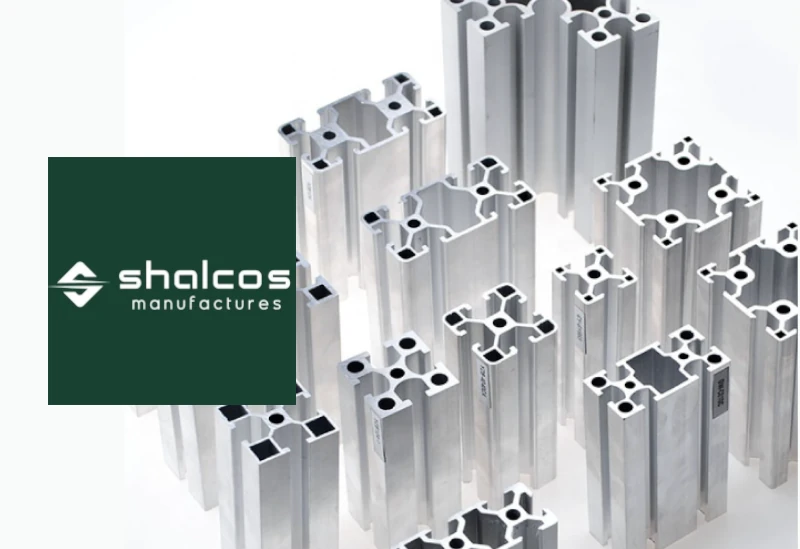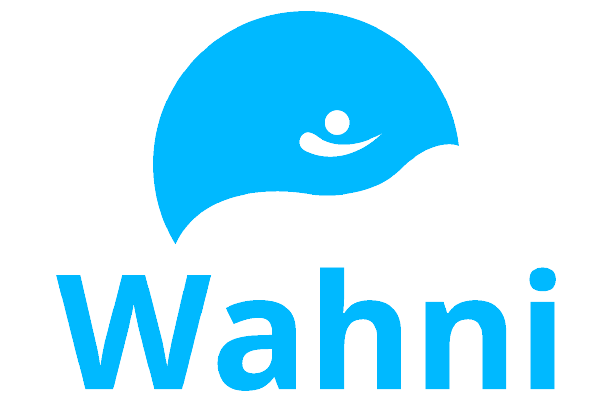
Introduction:
Shalcos Aluminium, a prominent aluminium channel manufacturer located in the Kannur district of Kerala, is trusted the best for its innovative practices and commitment to efficient operations. Founded in 2021 under the guidance of Mr Hashim and Mr Shuhaib, Shalcos had aimed to establish a robust manufacturing process for aluminium channels, using a unique approach of producing aluminium billets from scrap materials and virgin aluminium. To streamline its operations and manage complex processes, Shalcos embarked on a journey of implementing software solutions leading to the adoption of ERPNext through WAHNI.
Challenges:
- Extrusion Die Management: One of the prominent challenges was managing the extrusion dies effectively, which are crucial components in the manufacturing process. The high cost of dies necessitated tracking their wear and tear over time. Additionally, the dynamic nature of die models, which are adapted for different product dimensions, posed a challenge in maintaining accurate records.
- Life Tracking Die: Shalcos needed a system to monitor the lifespan of extrusion dies and relate it to the number of different products manufactured using the same die. This involved a complex tracking mechanism to ensure accurate cost allocation and product pricing.
- Managing Aging Process: The aging process which is vital for aluminium channel hardening, requires precise monitoring. Extruded aluminium channels undergo an oven treatment for hardening. This process needed to be integrated seamlessly into the overall manufacturing workflow.
- Handling Raw Material: With different forms of raw aluminium including scrap, virgin, semi-finished goods in the form of aluminium billets etc…, effective inventory management posed a logistical challenge in treating semi-finished goods as finished goods.
- Harmonizing the workflow: With the complexities of managing a multitude of customizing the number of work orders, Shalcos had to untangle the intricate web of fragmented orders and streamline the manufacturing workflow. The resource-draining process of crafting and managing multiple job orders consumed valuable time and labour.
- Weight-based Rate Calculation for Invoices: The rate calculation is being tied to weight rather than the number of units. This divergence had led to inefficiencies in the invoicing workflow, requiring a strategic solution to streamline the process.
Solutions Implemented:
Collaborating with WAHNI, a team of experienced functional consultants and core Python developers to design a comprehensive solution using the ERPNext platform, Shalcos encompassed various aspects such as:
- Tracking Die and Life Calculation: WAHNI successfully developed a dir tracking system that accounted for die name changes and accurately calculated die life based on quantities and weight of different products produced. This enabled better cost allocation and pricing decisions.
- Integrating Aging Process: The ERPNext implementation incorporated the ageing process seamlessly, ensuring that the hardening phase of the aluminium channels was monitored and managed effectively.
- Managing Inventory: The Software solution addressed the diverse forms of raw aluminium and treated semi-finished goods as finished products. This streamlines inventory management and allows accurate stock tracking.
- Optimizing Resource Allocation: Automated job cards and unified product cost allocation empowered by WAHNI enhanced resource allocation capabilities. This newfound efficiency empowered Shalcos to optimize its workforce and equipment allocation, contributing to holistic operational excellence. The implementation of automated job cards within the backend infrastructure intricated backend automation and effectively eradicated the labour-intensive effort that was previously required for generating and assigning numerous job orders.
- Dashboard and Reporting: Several dashboards and reports were developed including the Die Report, Batch-wise Balance History, Batch-wise Stock History, Production Stock, and usage of Raw Materials for billets and aluminium channels. And these reports enable data-driven decision-making.
- Calculating Loss: WAHNI also facilitated the calculation of losses, including evaporation and scrap losses occurring during the production process. This provided valuable insights into process efficiency.
- Automated Invoicing through Barcode Scanning: By linking ERPNext with the weighing machine, leveraging barcodes and incorporating automated rate calculations through WAHNI, Shalcos Aluminium overcomes the challenge of weight-based rate calculation for invoices. The invoice is swiftly generated based on the accurate weight information and dynamically updated rate from NSD Daily Rate. This streamlined process expedites billing and enhances accuracy and customer satisfaction.
These transformations optimize internal operations and reflect the company’s commitment to embracing innovative solutions for enhanced efficiency and accuracy. Shalcos Aluminium continues its upward trajectory along the scalability of this automated solution by WAHNI becomes a critical asset. Its inherent adaptability guarantees a smooth transition to accommodate rising production demands. The flexibility of the ERPNext framework positions the company well to meet evolving customer needs. With the potential addition of new dealers and the expansion of production, Shalcos foresees the need for enhanced sales reports and further insights into the manufacturing process, including capturing losses.
To conclude with, Shalcos Aluminium’s collaboration with WAHNI has addressed immediate challenges to position the company for future success in an ever-evolving industry. The successful implementation of ERPNext software has streamlined operations, enhanced cost management, and empowered data-driven decision-making, solidifying Shalcos’ position as a pioneer in the aluminium channel manufacturing company.
